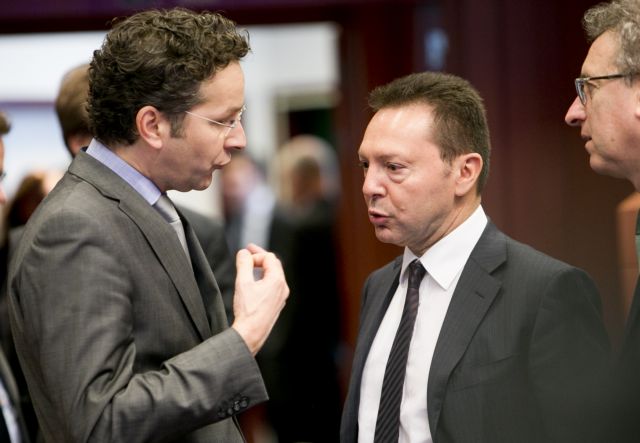Four days have been left for the Minister of Finances Yannis Stournaras to come to an agreement with the EU, ECB and IMF representatives, after the Eurogroup head Jeroen Dijsselbloem imposed a strict deadline. The troika heads are scheduled to meet with the Finance Minister at 3pm on Thursday, after a five-day break.
An unnamed European Commission officer told To Vima that the possibility of coming to an agreement by Sunday was “realistic”, since nobody would benefit politically otherwise. The reservations of the IMF’s Poul Thomsen however may jeopardize the progress of negotiations. This is indicative by Mr. Thomsen’s stance in recent negotiations, where he raised employment issues “out of the blue”, taking many by surprise.
It has been argued that the IMF representative is playing the “bad cop” role in the current negotiations, in an effort to force Greece to sign up to a new bailout, while pressuring European to decide on further Greek funding and a debt reduction.
15.5 billion euros at stake
If Greece and the troika come to an agreement, Greece will collect 10.1 billion Europe and will be able to claim three 1.8 billion euro loan installments from the IMF (5.4 billion euros total). The IMF has argued that it will only pay out if the Greek debt is viable for the next 12 months.
With 15.5 billion euros (and the country’s future) at stake, , it is no wonder that the negotiations with the troika have lasted 172 days so long (they began on the 22nd September 2013). Meanwhile in Portugal the quarterly negotiations lasted just 10 days, while in Cyprus 15.
The points of negotiation
- Fiscal gap: The troika is against the distribution of the 2013 surplus for social purposes, if it is to accept that there is no fiscal gap in 2014. Additionally, it has requested measures to the tune of 2 billion euros in 2015, in order to approve the new midterm plan (2015-2018).
- Employment: The two sides cannot agree upon the reduction of employer insurance contributions by 3.9%, with the troika demanding the virtual deregulation of redundancies. The troika has demanded that unanimous decisions be necessary for strikes, reintroducing lock outs to allow employers to counter strikes and abolishing the 3-year wage raise (meaning minimum wage forever).
- Collective redundancies and public sector: The troika is pressuring the Greek side to suspend 12,500 by the end of March and to carry out the new wave of suspensions for 2014, which will result in further dismissals in 2014 and 2015. Greece has seemingly rejected dismissals in 2015. The triumvirate has also requested the further reduction of additional earnings and bonuses in the public sector.
- OECD toolkit: Perhaps one of the greatest differences of opinion relates to the list of OECD recommendations, which the troika has demanded that the Greek government fully adopt. Greece has rejected with a number of the proposals, such as the working definition of “fresh milk” and the sale of non-prescription medication in super markets.





